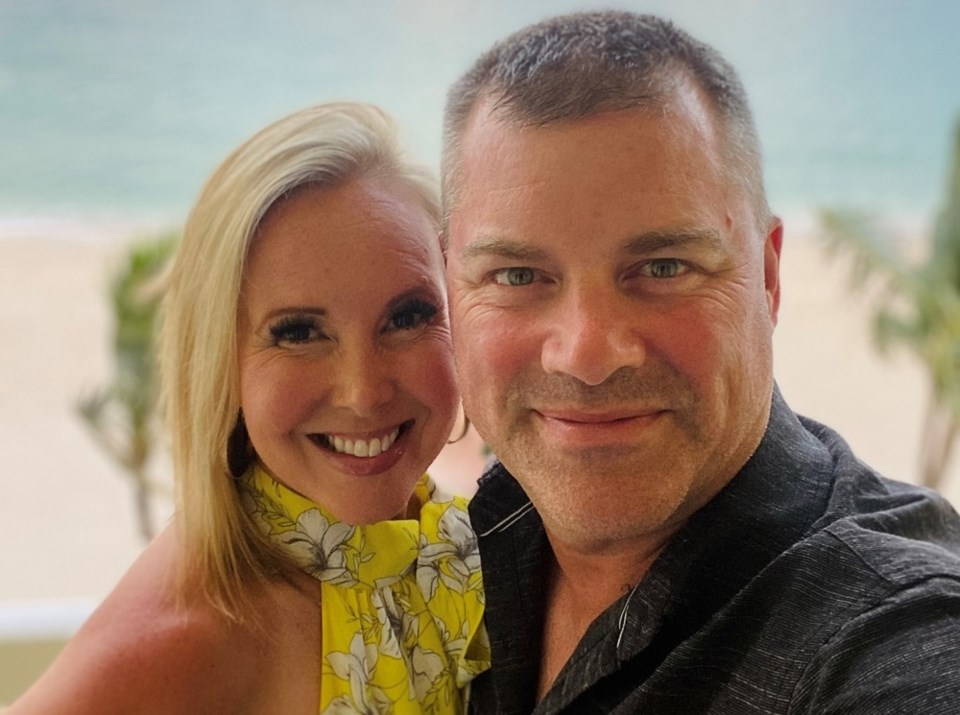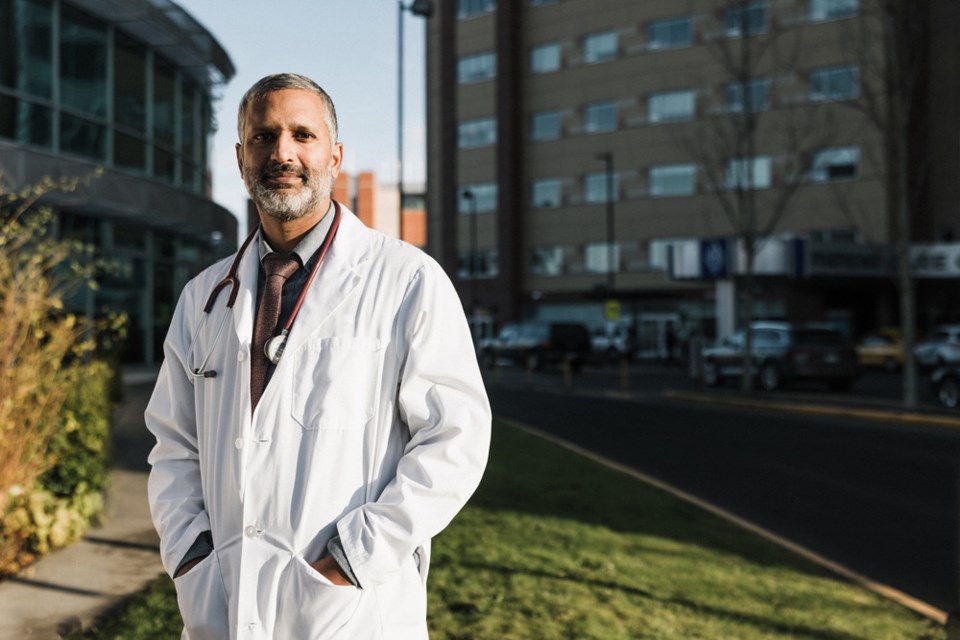BC Cancer – Victoria serves a widespread population from across Vancouver Island and neighbouring communities. For patients, this can mean hours of travel – sometimes causing them to be away from home for weeks at a time – which can take a physical, financial and mental toll.
To address this obstacle, world-class researchers at BC Cancer – Victoria, fuelled by donor support, are developing more effective treatments to decrease the travel burden and increase the centre’s capacity to deliver treatments.
One such researcher is Dr. Abraham Alexander who focuses on prostate cancer. Prostate cancer accounts for 12% of all cancer diagnoses in men, and it’s estimated that 820 men on Vancouver Island alone will be diagnosed this year.
Promoting treatment efficiency
Recent research led by Alexander dramatically improved B.C.’s standard of care treatment for curative (meaning the cancer hasn’t spread) prostate patients. Previously requiring five to eight weeks of daily radiation treatments, patients now require just five doses of a high-precision radiation therapy called stereotactic ablative radiotherapy (SABR).
“This change has made a big difference in patients’ quality of life,” says Alexander. “Patients from up Island don’t have to stay in Victoria anymore. They can come down, receive treatment, go home and come back the following week.”
SABR delivers high doses of radiation to tumours with pinpoint precision, while limiting exposure to healthy tissues. This method results in a highly effective treatment with fewer side effects. Decreasing the number of radiation visits per patient also creates more capacity for others to access timely treatment.
Alexander’s team is building on this success with their next cutting-edge clinical trial: ADAPT-25. The trial harnesses the power of AI to test the efficacy of two doses of SABR on curative prostate patients. With the help of AI, radiation can be targeted even more precisely and adapted to match daily changes in a patient’s body.
Putting patients first

BC Cancer Foundation is fundraising $500,000 to support ADAPT-25, which is expected to launch later this year.
Nanaimo’s Don Helgeson, 54, knows firsthand what advancement in care means to patients outside Victoria. Helgeson has faced three cancer diagnoses, including prostate cancer, due to Lynch syndrome – a condition that causes cancer to grow easily in his body.
Helgeson’s cancers have only required surgery thus far, which was available at home. However, now he’s facing a prostate cancer recurrence and anticipating travelling to Victoria for radiation treatment, something that can only be done at a BC Cancer Centre.
“It was one thing to face cancer in my hometown, but the thought of doing it elsewhere – away from family, home and the space I’m familiar with – is entirely different,” shares Helgeson. “I encourage men with a history of prostate cancer to seek earlier PSA testing than I did. If the cancer is caught before it spreads, they’re likely to have a less challenging course of treatment.”
Travelling for care creates a physical, emotional and financial toll for patients, particularly for those away from the comfort and support systems of home for long periods.
Alexander’s research has already transformed how prostate cancer patients access care on the Island. This is an opportunity to move the needle even further.
Learn more about how BC Cancer Foundation donors are closing the care gap for patients like Don across the province here. Or contact William Litchfield at [email protected] or (250) 667-8690.



